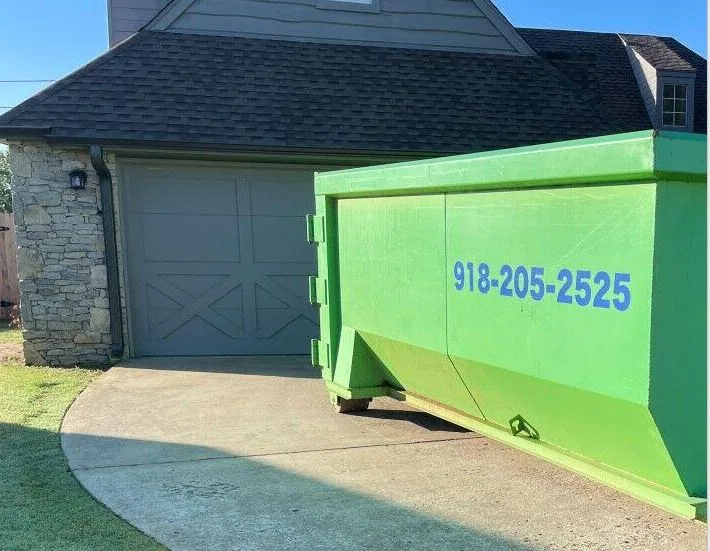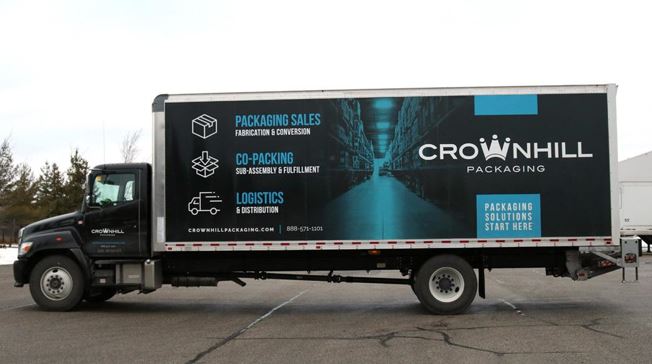How Do You Plan a Smarter Cleanup Project? (Start With Your Dumpster)
It’s easy to overlook the dumpster in your project plan. People focus on paint colors, new flooring, or demolition timelines—but then the waste piles up. Suddenly, you’re making emergency dump runs, your project is behind, and the job site looks like a landfill.
That’s where more innovative cleanup planning comes in—and yes, it starts with your dumpster. If you’re thinking, “It’s just a metal box,” this article might change your mind.
Here’s how to organize your project with cleanup in mind, from timeline strategy to the right dumpster size.
Why Should You Think About the Dumpster Before You Start?
Here’s the truth: most people rent dumpsters after the mess starts. By then, you’re either in a rush, dealing with delays, or overspending.
Planning gives you control. You can:
- Avoid overflow or the need for extra trips
- Keep your site or space safer and more organized
- Reduce total project time by removing waste as you go
- Match dumpster size to project scope accurately
- Time delivery and pickup to your schedule
So, don’t think of a dumpster as just a “final step.” It’s a productivity tool—one that can make or break how smoothly your cleanup goes.
What Size Dumpster Keeps You on Track?
Matching dumpster size to the flow of your project is a smart way to stay efficient. Think about how much debris you’ll create—and how fast it’ll pile up. Dumpster rentals come in different sizes, and each serves a purpose:
- 15-Yard – Best for minimal waste: small cleanouts, bathroom remodels, and yard debris.
- 20-Yard – A versatile middle-ground for moderate renovation projects or whole-room cleanups.
- 25-Yard – Ideal for large cleanouts, multi-room remodels, or jobs with heavy materials.
- 30-Yard – Great for construction, full-home projects, or when you know it’s going to get messy.
If your project is somewhere between moderate and massive, 25-yard dumpsters often offer the best value. They’re big enough for bulk material but manageable enough to place in most driveways.
The takeaway? Choosing the right size is often more cost-effective than choosing the biggest one.
Can You Rent a Dumpster Too Early?
You can, but it’s fixable if you plan well.
Dumpsters are typically rented in blocks of time (5–7 days is standard). If it arrives too soon and sits unused, you lose value. If it arrives too late, you’re stuck staring at a heap of debris while waiting.
Here’s a more innovative approach:
- For demolition-heavy projects: Have the dumpster dropped off one day before tear-out begins.
- For cleanouts: Schedule delivery the same day you start hauling.
- For roofing or siding jobs: Coordinate with the contractor—don’t assume they’re bringing one.
- For yard overhauls: Think seasonally—avoid delays during rainy spells or high-wind weekends.
Bonus tip: if you’re not sure when to schedule it, local companies like Two Brothers Dumpsters can help you time it right based on your project type and how fast customers typically fill the container.
What’s the Best Way to Fill a Dumpster Efficiently?
Okay, you’ve got the dumpster. Time to fill it up—and this part can go wrong if you’re not careful.
Avoid this rookie mistake: throwing items in randomly.
Instead, treat your dumpster like a game of real-life Tetris:
- Start with flat, heavy materials: drywall, tile, flooring
- Break down furniture or boxes to reduce wasted space
- Load evenly to distribute weight—no leaning towers
- Save lightweight debris for the top (like insulation or packaging)
- Keep prohibited items out—paint, electronics, tires, and batteries often aren’t allowed
A messy dumpster not only wastes space—it can cost you extra if it’s overloaded or unbalanced. Treat it like part of your project plan, not an afterthought.
What Happens If You Overfill the Dumpster?
Short answer? You’ll pay for it. Longer answer? It depends on your provider’s policies—but overfilling can result in:
- Overage fees for exceeding the weight limit
- Trip cancellation if the driver can’t legally haul it
- Delayed pickups if materials are sticking out
To avoid this, ask upfront:
- How much weight is included?
- What are the dimensions and fill lines?
- What’s the process if you need a second container?
A little planning here saves a lot of money and frustration later.
How Does Cleanup Affect the Rest of Your Project?
Let’s zoom out. Waste removal is more than logistics—it impacts:
- Workflow: Can your crew move freely around the space?
- Morale: Does a cleaner site keep everyone focused?
- Deadlines: Is waste removal holding up the next phase?
- Permits/Inspections: Some cities require a clean site to approve progress
That’s why contractors and homeowners alike are leaning on dumpster rentals not just as cleanup tools—but as productivity enhancers.
If you’re managing a tight timeline or multiple subcontractors, your dumpster schedule should be integrated into the overall plan from day one.
How Do You Book the Right Dumpster the Right Way?
It’s easier than you think—especially when you book locally.
Here’s what to have ready before calling:
- Type of project (remodel, cleanout, construction, etc.)
- Estimated size of debris (or example items you’re tossing)
- Preferred delivery date and location
- The timeframe you’ll need it on site
- Questions about weight, restrictions, or access
Then, call a company that doesn’t just drop and dash. You want someone who understands local regulations, helps you choose the right container, and offers flexible scheduling.
That’s precisely what you get with Two Brothers Dumpsters, a Tulsa-based dumpster rental service with a reputation for transparent pricing, no-hassle delivery, and honest conversations with real people. You won’t be bounced around or left guessing—they make it simple.
Final Thoughts: Don’t Just “Get a Dumpster.” Use It Strategically.
Renting a dumpster isn’t complicated—but using it strategically can give your entire project a boost. Whether you’re gutting a kitchen, clearing storm debris, or managing a work site, the most innovative projects treat waste removal like a step, not a side note.
So, next time you’re planning a cleanup project, don’t ask if you need a dumpster—ask how a dumpster can make the job easier, faster, and less stressful.
Because when you rent smart, clean smarter, and plan, your dumpster isn’t just a metal box—it’s the MVP of your project timeline.





